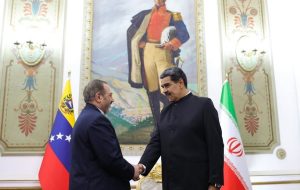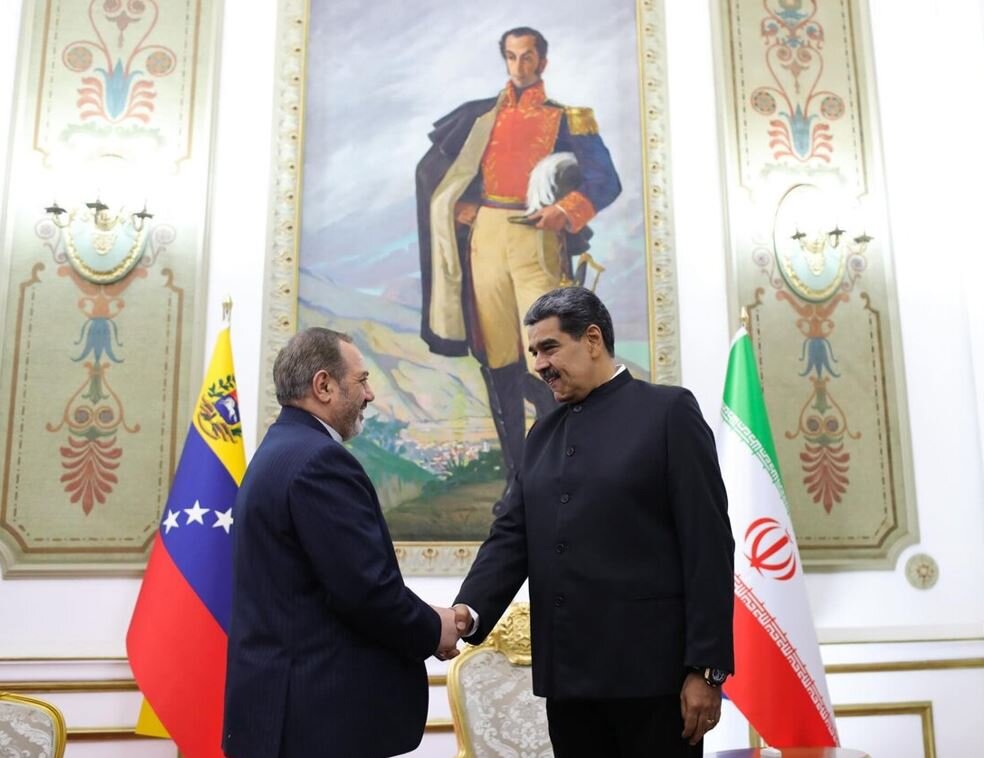Tehran, Caracas deepen strategic ties with new cooperation agreements
TEHRAN – In a landmark visit to Venezuela, Iran has signed a series of agreements aimed at strengthening bilateral cooperation across a wide range of sectors. The high-level Iranian delegation, led by Defense Minister Brigadier General Aziz Nasirzadeh, marked a significant step in fostering closer ties between the two nations during the 10th meeting of


TEHRAN – In a landmark visit to Venezuela, Iran has signed a series of agreements aimed at strengthening bilateral cooperation across a wide range of sectors.
The high-level Iranian delegation, led by Defense Minister Brigadier General Aziz Nasirzadeh, marked a significant step in fostering closer ties between the two nations during the 10th meeting of the Iran-Venezuela Joint Economic Cooperation Commission in Caracas.
General Nasirzadeh, who also heads Iran’s side of the Joint Commission, met with Venezuelan Vice President and Oil Minister Delcy Rodriguez as well as President Nicolás Maduro.
During these discussions, the two nations signed two key memorandums of understanding, one granting visa exemptions and another focused on technology transfer and training in artificial intelligence (AI).
President Maduro emphasized the growing political and economic trust between the two countries, calling Iran a “technological and scientific powerhouse” that has demonstrated resilience against decades of external pressure.
He hailed the new agreements as the beginning of a “new chapter” in bilateral relations, aimed at creating opportunities in trade, tourism, and cultural exchange. “Venezuela is ready to welcome Iranian families and tourists as part of this growing partnership,” Maduro said.
Maduro highlighted the strategic importance of the Iran-Venezuela relationship in the context of a shifting global order. “Iran and Venezuela represent nations striving for freedom and the end of colonialism, hegemony, and fascism,” he declared, describing the partnership as part of a larger vision for a multipolar and multicentric world.
General Nasirzadeh echoed these sentiments, describing the two nations as “friends and brothers in a single boat navigating shared challenges.” He criticized imperialist efforts to undermine sovereign nations and praised the cooperation between Tehran and Caracas as a model of resistance.
“This commission will serve as a milestone in advancing relations between our countries,” he added.
The discussions also highlighted progress in various fields, including transportation, tourism, education, and cultural integration.
Venezuelan Transport Minister Ramón Velázquez revealed that an Iranian entrepreneur plans to equip 50 Venezuelan schools with AI learning tools, calling them “scientific seedbeds” for future generations.
Iran and Venezuela, both under stringent U.S. sanctions, have expanded their collaboration significantly in recent years. A 20-year partnership deal signed in 2022 covers cooperation in oil, petrochemicals, defense, agriculture, and other sectors.
Notably, Iran provided critical assistance to Venezuela in 2020 when U.S. sanctions caused severe fuel shortages, supplying crude oil, condensate, and technical support to modernize Venezuela’s refining infrastructure.
Nasirzadeh reaffirmed Iran’s commitment to deepening ties with Venezuela, pledging to facilitate private-sector contracts and ensure the successful implementation of bilateral agreements. Reports suggest that both sides remain focused on following up on these commitments to sustain their strategic partnership.
